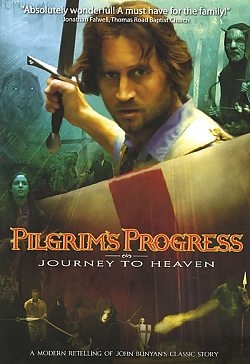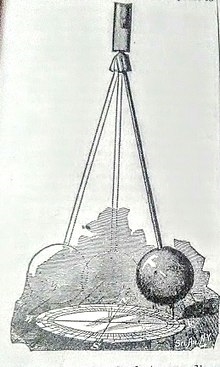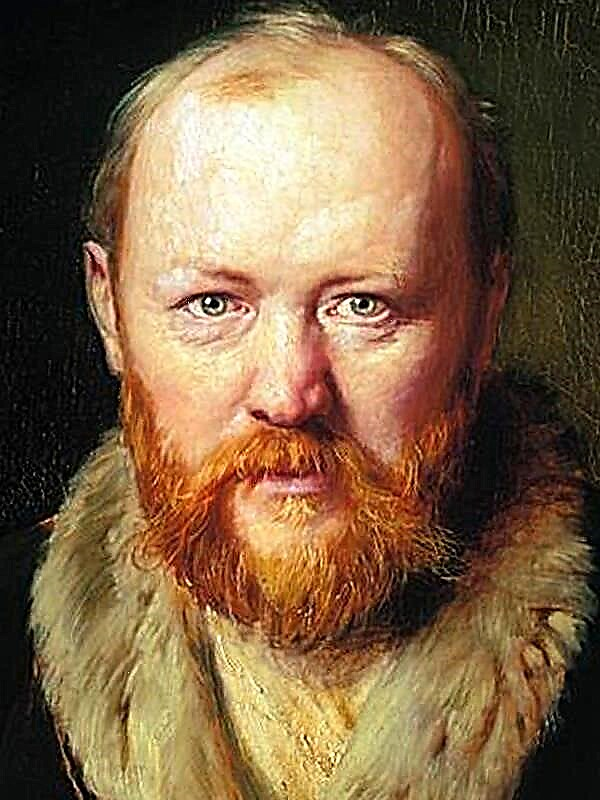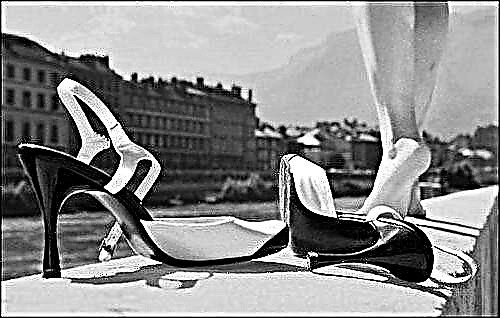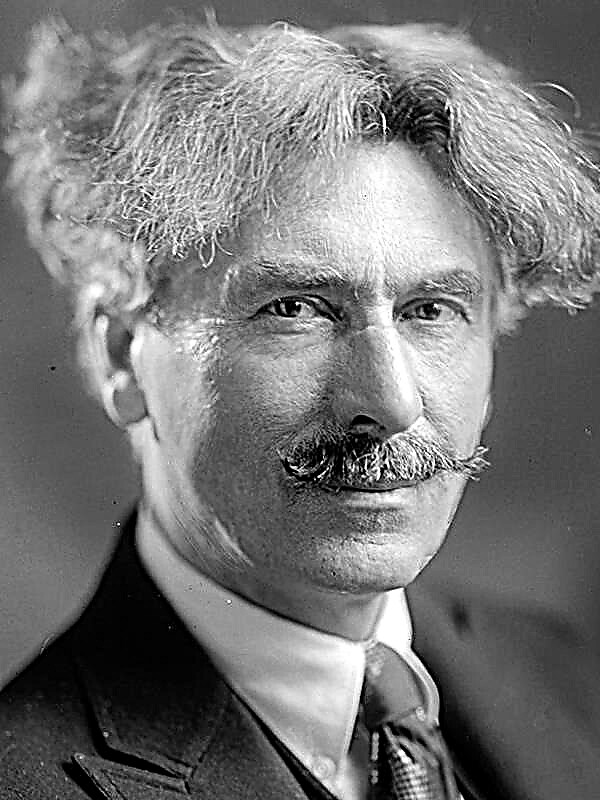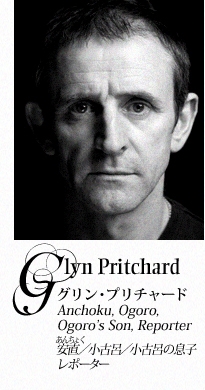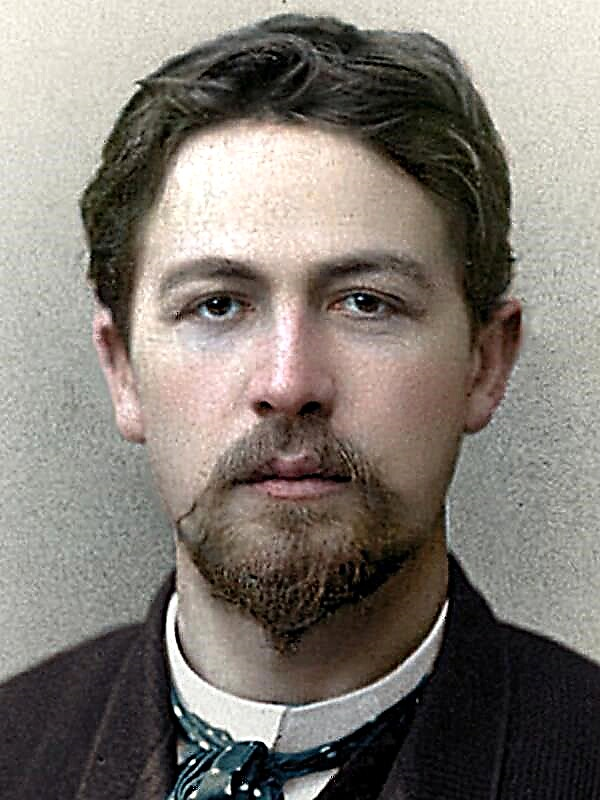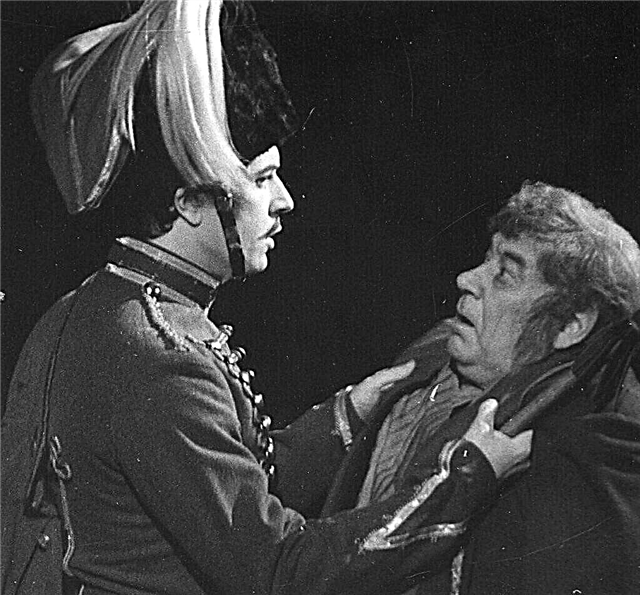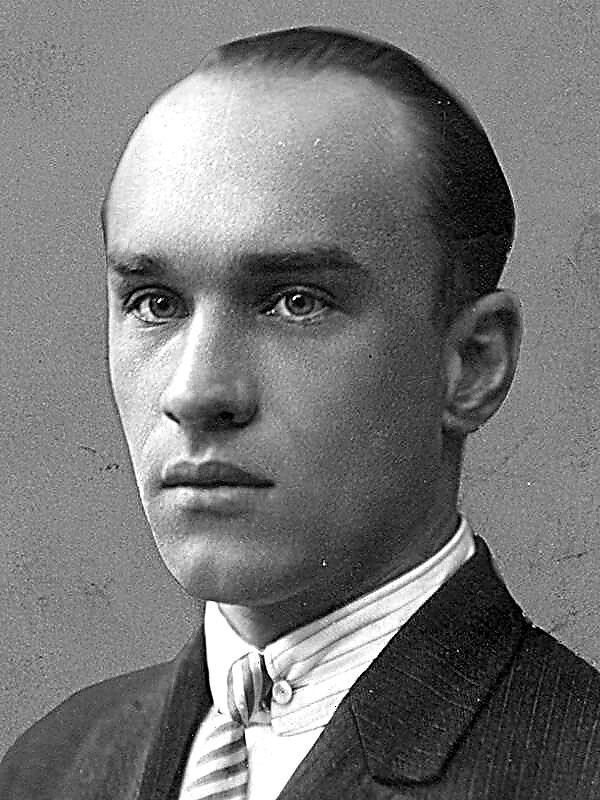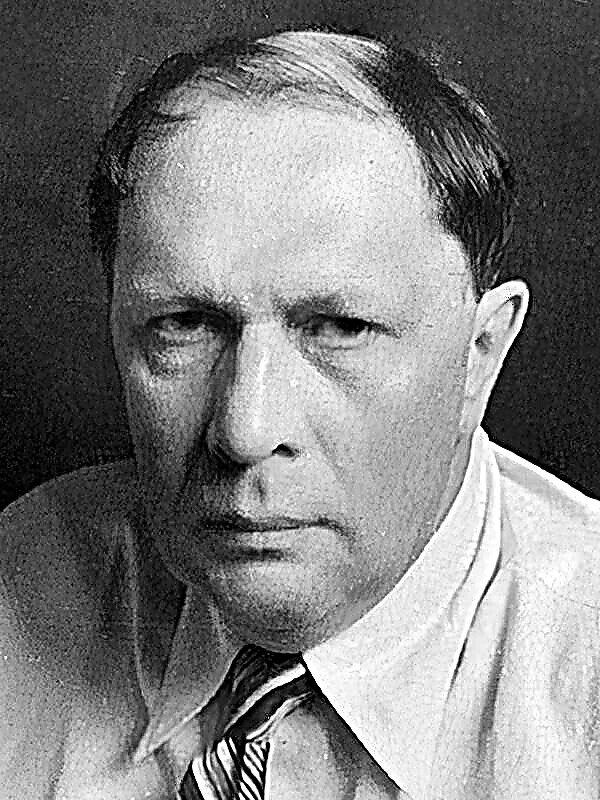The action takes place in the XX century. in the area of Danzig. The narration is on behalf of Oscar Macerat, a patient in a special medical institution, a person whose growth stopped at the age of three and who never parted with a tin drum, trusting him with all the secrets, describing with his help everything that he sees around. An orderly named Bruno Munsterberg brings him a bundle of clean paper, and he begins a biography - his and his family's.
First of all, the hero describes the maternal grandmother, Anna Bronsky, a peasant woman who once in October 1899 saved the hero’s grandfather from the gendarmes, Joseph Koliaychek, hiding him under his many wide skirts. Under these skirts that memorable day, says the hero, his mother Agnes was conceived. On the same night, Anna and Joseph got married, and grandmother Vincent's brother took the newlyweds to the central city of the province: Kolyaychek was hiding from the authorities as an arsonist. There he settled down as a raftsman under the name of Joseph Wrank, who drowned some time ago, and lived like this until 1913, until the police attacked his trail. In that year, he was supposed to drive the raft from Kiev, where he sailed in tow of the "Radown".
In the same tug was the new owner Dückerhof, a former foreman at the sawmill, where Kolyaychek worked, who recognized him and gave him to the police. But Kolyaychek did not want to surrender to the police and, upon arrival at his home port, jumped into the water hoping to get to the next pier, where the ship called Columbus was just launched. However, on the way to the Columbus, he had to dive under a too long raft, where he found his death. Since his body was not found, there were rumors that he nevertheless managed to escape and sailed to America, where he became a millionaire, having made a fortune on the timber trade, matches of match factories and fire insurance.
A year later, my grandmother married the older brother of her late husband, Gregor Kolyaychek. Since he drank everything he earned from a powder mill, his grandmother had to open a grocery store. In 1917, Gregor died of the flu, and twenty-year-old Jan Bronsky, the son of Vincent’s grandmother, who was about to serve at Danzig’s main post office, settled in his room. She and her cousin Agnes were very sympathetic to each other, but never married, and in 1923 Agnes married Alfred Macerat, whom she met in the hospital for the wounded, where she worked as a nurse. However, the tender relationship between Jan and Agnes did not stop - Oscar repeatedly emphasizes that he is more inclined to consider Jan as his father rather than Macerata; Jan himself soon married the Hashwig, a Kashubian girl, with whom he had adopted his son Stefan and daughter Marga. After the conclusion of the peace treaty, when the area around the mouth of the Vistula was proclaimed the Free City of Danzig, within which Poland received a free port, Jan switched to serve on the Polish post and received Polish citizenship. After the wedding, the couple of Macerats bought up a shop of colonial goods ravaged by debtors and engaged in trade.
Oscar was soon born. Endowed with a childlike sharp perception, he forever remembered his father’s words: “Someday a shop will go to him” and mother’s words: “When little Oscar turns three, he will get a tin drum from us.” His first impression was a moth beating on burning lights. He seemed to drum, and the hero called him "Oscar's mentor."
The idea of getting a shop aroused a feeling of protest in the hero, and his mother liked the proposal; immediately realizing that he would be destined to remain misunderstood by his own parents all his life, he would not want to live forever, and only the promise of a drum reconciled him with reality. First of all, the hero did not want to grow and, taking advantage of the oversight of Macerat, who forgot to close the cellar lid, on his third birthday fell down the stairs leading down. In the future, this saved him from going to the doctors. On the same day, it turned out that with his voice he was able to cut and smash glass. This was the only opportunity for Oscar to save the drum. When Macerat tried to take away a drum punched to holes, he shouted smashed the glass of the grandfather clock. When at the beginning of September 1928, on his fourth birthday, they tried to replace the drum with other toys, he crushed all the lamps in the chandelier.
Oscar was six years old, and his mother tried to assign him to the Pestalozzi school, although from the point of view of those around him, he still did not really know how to speak and was very undeveloped. At first, the teacher liked the boy named Freulein Spollenhauer, because she successfully drummed the song that she asked to sing, but then she decided to put the drum in the closet. On the first attempt to tear out the drum, Oscar only scratched her glasses with his voice, on the second - he broke all the window panes with his voice, and when she tried to hit him with a stick in the hands, he broke her glasses, scratching her face with blood. So the study at school ended for Oscar, but by all means he wanted to learn to read. However, none of the adults cared about the underdeveloped freak, and only the mother’s friend, childless Gretchen Scheffler, agreed to teach him to read and write. The choice of books in her house was very limited, so they read Goethe's Selective Affinity and the weighty volume Rasputin and Women. The teaching was easy for the boy, but he was forced to hide his successes from adults, which was very difficult and insulting for him. From three or four years, while the teachings continued, he came to the conclusion that "in this world, Goethe confronts each Rasputin." But he was especially pleased with the excitement that mother and Gretchen experienced from reading a book about Rasputin.
At first, Oscar's world was limited to an attic, from which all the nearby courtyards were visible, but once the kids fed him “soup” from crushed bricks, living frogs and urine, after which he began to prefer long walks, most often by the hand with his mother. On Thursdays, mother took Oscar with her to the city, where they invariably visited Sigismund Marcus's toy store to buy another drum. Then mother left Oscar with Marcus, and she herself went to cheap furnished rooms, which Jan Bronsky specially rented for meetings with her. Once the boy ran away from the store to try his voice at the City Theater, and when he returned, he found Marcus on his knees in front of his mother: he persuaded her to flee with him to London, but she refused - because of Bronsky. Hinting at the Nazis coming to power, Marcus, among other things, said he was baptized. However, this did not help him - during one of the pogroms, in order not to fall into the hands of the rioters, he had to commit suicide.
In 1934, the boy was taken to the circus, where he met a midget named Bebra. Anticipating the torchlight processions and parades in front of the stands, he pronounced the prophetic words: “Try to always sit among those who are in the stands, and never stand in front of them. ... Little people like you and me will find a place even on the most crowded stage. And if not on it, then it’s true under it, but never before it. ” Oscar forever remembered the covenant of an older friend, and when one day in August 1935, Macerat, who joined the Nazi party, went to some sort of demonstration, Oscar, hiding under the stands, ruined the whole procession, drumming down the stormtrooper orchestra for waltzes and other dance rhythms.
In the winter of 1936/37, Oscar acted out as a tempter: hiding in front of some expensive store, he cut out a small hole in the window with his voice so that the buyer looking at it could take the thing he liked. So Jan Bronsky became the owner of an expensive ruby necklace, which was presented to his beloved Agnes.
Oscar believed the truth of religion with a drum: giving the drum into the hands of the plaster baby Christ in the temple, he waited a long time for him to play, but a miracle did not happen. When the vicar Rashtsey caught him at the crime scene, he never managed to break the church windows,
Soon after visiting the church, on Good Friday, the Macerats, as a whole family, went for a walk along the seashore with Ian, where they witnessed a man catching eels on a horse's head. It made such an impression on Mother Oscar that at first she was shocked for a long time, and then she began to devour fish in huge numbers. It all ended up that my mother died in the city hospital from "jaundice and fish intoxication." At the cemetery, Alexander Shefler and musician Maine rudely escorted the Jew Marcus, who had come to say goodbye to the deceased. An important detail: at the cemetery gate, the local crazy Leo the Fool shook hands with Markus in condolences. Later, already at other funerals, he refuses to shake hands with the musician Maine, who joined the stormtrooper squad; he will kill four of his cats from chagrin, for which he will be sentenced to a fine and expelled from the ranks of the SA for inhumane treatment of animals, although he will become especially zealous during the “Kristallnacht” when they set fire to the synagogue and smashed Jewish shops. As a result, the toy dealer will leave the world, taking away all the toys with him, and there will be only a musician named Maine who “marvelously plays the trumpet”.
On the day when Leo the Fool refused to shake hands with the attack aircraft, Oscar's friend Herbert Truchinski was buried. For a long time he worked as a waiter in a port tavern, but quit there and got a job as a caretaker in a museum - to guard a gallion figure from a Florentine galeas, which, according to legend, brought misfortune. Oscar served Herbert as a kind of mascot, but one day, when Oscar was not allowed into the museum, Herbert died a terrible death. Excited by this memory, Oscar hits the drum especially hard, and the orderly Bruno asks him to drum more quietly.

